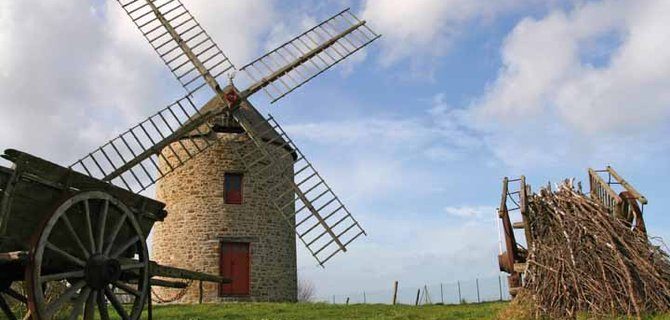The Importance of Sustainable Farming in Mountain Regions
As we progress through the 21st century, the world faces a formidable challenge: balancing economic growth with environmental sustainability. This balance is particularly critical in mountain regions, where unique ecological systems support diverse flora and fauna, while local communities often rely heavily on agriculture for their livelihoods. The quest to achieve sustainable farming in these areas is vital, not only for preserving the delicate ecosystems but also for ensuring the economic viability and growth of these communities.
Defining Sustainable Farming
Sustainable farming refers to agricultural practices that meet current food production needs without compromising the ability of future generations to meet their own needs. It emphasizes environmental health, economic profitability, and social and economic equity. In mountain regions, sustainable farming aims to preserve soil quality, reduce erosion, manage water resources efficiently, and maintain biodiversity.
Challenges in Mountainous Agriculture
Mountainous regions present unique challenges for farmers. The steep slopes and fragile soil increase the risk of erosion, while varying altitudes and microclimates require adaptable agricultural techniques. Moreover, these areas often face limited infrastructure, isolation from markets, and vulnerability to climate change. These challenges necessitate innovative solutions for sustainable agriculture.
Opportunities for Young Graduates in Sustainable Agriculture
For young graduates interested in carving out a career in sustainable agriculture, mountain regions offer a wealth of opportunities. The focus on sustainable practices encourages the development of new skills and knowledge that are critical in today's job market.
- Research and Development: There is a growing demand for research into sustainable agricultural practices that are specifically tailored to mountain ecosystems.
- Agro-technology: The development and implementation of technology to aid in sustainable farming practices, such as precision agriculture, offer novel career paths.
- Policy and Advocacy: As awareness of environmental issues grows, so does the need for policies that promote sustainable agricultural practices and advocacy roles that push for their adoption.
Educational Paths and Professional Development
Pursuing a career in sustainable agriculture in mountain regions often requires specialized education and training. Relevant educational backgrounds may include environmental science, agriculture, ecology, and resource management. Many universities now offer post-graduate programs specifically focused on sustainable agriculture and environmental management.
Professional development can also be supported through various programs and workshops offered by agricultural organizations and NGOs focused on sustainable development. These programs often provide valuable hands-on experience in managing the practical challenges faced by farmers in mountain regions.
Impact of Technology in Sustainable Mountain Farming
Technology plays a transformative role in sustainable mountain farming. From precision agriculture that minimizes waste and optimizes resources to remote sensing technologies that monitor environmental changes, the integration of technology in farming practices is crucial.
"The integration of modern technology in traditional farming practices not only enhances production but also ensures the protection of fragile ecosystems," says Dr. Elise Thompson, a leading expert in sustainable agriculture.
Sustainable Farming Practices in Focus
There are several key practices in sustainable farming that help maintain balance between economic needs and ecological preservation:
- Agroforestry: This practice involves integrating trees and shrubs into farmland, which can enhance biodiversity, improve soil quality, and reduce erosion.
- Crop Rotation and Diversity: Rotating crops and diversifying plant species can help maintain soil health and reduce pest and disease outbreaks.
- Soil Conservation: Techniques such as terracing and contour plowing help prevent soil erosion on steep slopes.
- Water Management: Efficient irrigation systems and water conservation techniques are essential to maintain productivity and sustainability in water-scarce mountain regions.
Conclusion
The drive towards sustainable farming in mountain regions is not only a noble pursuit but a necessary one for the survival of our planet’s intricate ecosystems and the well-being of communities. Young graduates entering this field have the opportunity to contribute significantly to environmental protection while driving innovation in agricultural practices. With the right blend of education, practical experience, and a commitment to sustainability, the aspiring professionals of today can become the pioneers of a balanced, prosperous, and sustainable agricultural future.






